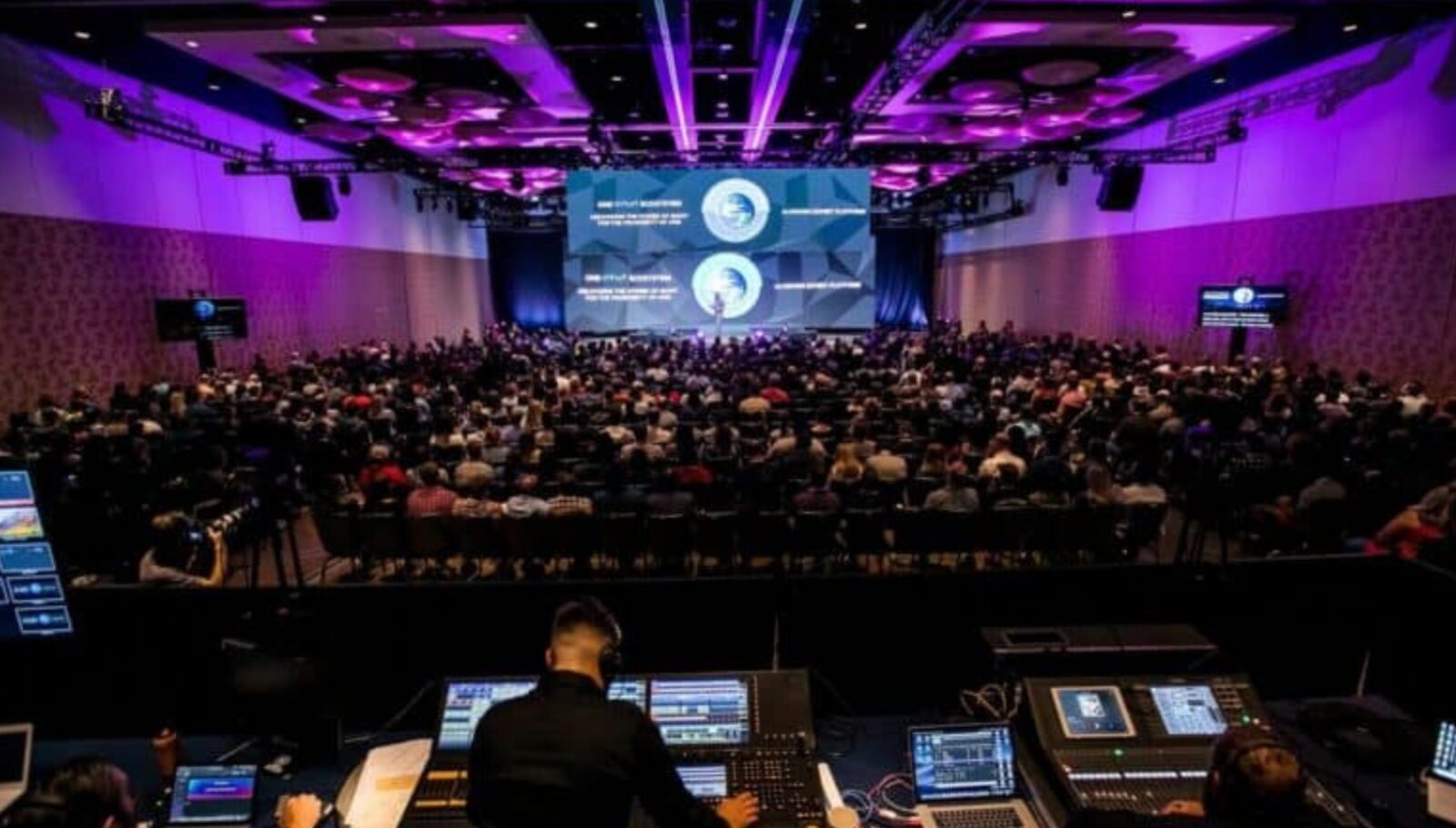Lessons Only On-Site Event Experience Can Teach You

When I first stepped into the world of live events after years in theatre, I thought I knew exactly what to expect.
Cueing a show? Done it a hundred times.
Navigating pre-production? No problem.
Leading rehearsals and managing talent? All in a day’s work.
A headset is a headset, right?
Not quite.
Some lessons don’t live in a production calendar. They reveal themselves five hours before doors open, while the script is still changing, and a VIP is asking for green juice you’ve never heard of.
This post is a collection of those lessons.
Things I thought I understood… until I actually lived them.
Timelines are tighter—and that’s an understatement.
In theatre, we get weeks (sometimes months) of rehearsal, tech, previews, and refinement throughout the process. In live events? Tech might happen the morning of the show. The script might still be changing as guests take their seats.
There’s no “preview period.” You go live, for real, in front of a crowd that often includes broadcast media and executives.
A common joke among the crew? “This show is our dress rehearsal.”
Event scripts are living creatures.
Unlike theatre, where the script eventually locks, event scripts can evolve right up to the moment the show begins or as a presenter takes the stage, and often mid-show.
The key is to prepare your team to stay nimble. That includes:
- Building flexible documents and cue stacks
- Planning for “what if” scenarios with the client. Always have a plan B and plan C, etc.
- Engineering workflows that can pivot in real time
Contingency planning isn’t a luxury, it’s part of the craft.
“I thought my theatrical skillsets might not translate…”
As it turns out, they are my greatest strength.
Theatre folks know how to tell a story with texture and intention. We iterate. We collaborate. We solve problems before anyone else notices there was one. And stage managers, especially, are built for this space.
Here’s what that looks like in the event world:
- Deck & Backstage Management: Part blocking briefing, part backstage hype person, this role hinges on quickly building trust with speakers and talent. If you’re lucky, you’ll have a brief rehearsal to walk through the ins and outs of their segment. Success here depends on your ability to track details, see the big picture, and stay sharp under pressure, keeping everything moving smoothly while the show is live.
- Producing: Turning a client’s vision into clear, actionable steps, clarifying the emotional tone of a keynote, aligning content with brand language, and coordinating with tech leads to bring it all together. Depending on the project, you may focus on logistics, technical execution, or content and creative aspects. At its core, producing is about managing moving parts—budgets, teams, schedules, and communication—so everyone delivers their piece on time and on brand.
- Show calling: Arguably the closest match to a traditional stage manager role. It involves orchestrating complex opening numbers and seamless transitions, calling cues across video, lighting, audio, and staging in real time, while troubleshooting surprises and ensuring a smooth, uninterrupted experience for the audience.
Looking Back
After 10+ years in the business, I wish I could go back and tell my former self:
- Your presence under pressure makes others feel safe.
- Your attention to detail is an asset.
- Your ability to hold space for the creative process and sort out the puzzle of technical logistics—while having a little fun along the way? That’s what makes the magic happen.
Live events are messy, exhilarating, unpredictable—and deeply human.
They challenge me to stay grounded in the face of change.
To build trust quickly. To listen harder.
And honestly? That’s why I love this work.
It keeps evolving. So do I.
About the Author
BRITTNEY A. HUGHES
Independent Producer, Stage & Production Manager
With an extensive background in live entertainment production and a passion for the performing arts, I strive to create unique experiences that enable audiences to connect with something greater than themselves. Formally trained as a theatrical Production Stage Manager, my background in Fine Arts has prepared me to work on a wide variety of projects, including product launches, award ceremonies, keynote sessions, opera, dance, musical theatre, and content production. In short, live is where I thrive.
Back to Home
Editor's Note: At StageLync, an international platform for the performing arts, we celebrate the diversity of our writers' backgrounds. We recognize and support their choice to use either American or British English in their articles, respecting their individual preferences and origins. This policy allows us to embrace a wide range of linguistic expressions, enriching our content and reflecting the global nature of our community.
🎧 Join us on the StageLync Podcast for inspiring stories from the world of performing arts! Tune in to hear from the creative minds who bring magic to life, both onstage and behind the scenes. 🎙️ 👉 Listen now!
